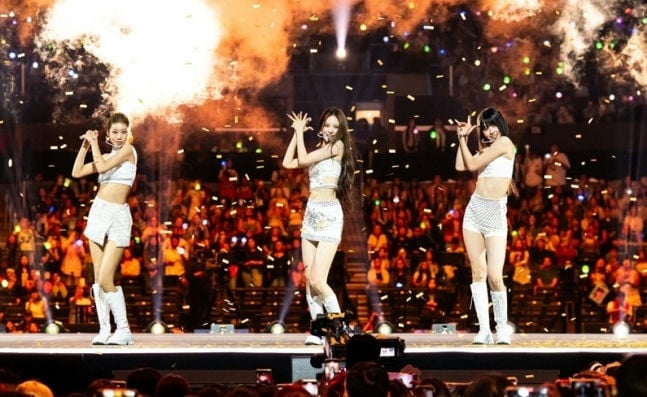“They misunderstood the essence of ‘Golden’. It should have been a vocal-driven stage, not a dance show,” remarked one disappointed fan after rookie girl group IZNA performed the track at KCON LA 2025.
Despite being a fresh face in K-pop, IZNA is known for their stable vocal skills. Their participation in KCON — a long-standing, globally recognized event — was a major opportunity. Their chosen song, “Golden,” from Netflix’s K-Pop Demon Hunters OST, is a symbol of K-pop’s growing international reach, having topped both the Billboard Hot 100 and UK Official Charts.
However, instead of earning praise, IZNA’s rendition of “Golden” left audiences underwhelmed.
Originally loved for its emotional delivery and vocal richness, “Golden” is less about choreography and more about storytelling through voice. Yet IZNA’s stage was lip-synced and performance-heavy, missing the song’s emotional depth. While the group dazzled visually and moved with polished precision, their interpretation felt disconnected from the song’s core identity.
This choice drew particular criticism because the performance took place in the U.S., where live vocals are a cultural expectation — not just a bonus.

In the U.S., authenticity is closely tied to live singing. This dates back to the infamous Milli Vanilli scandal in 1989, where a playback error exposed the duo’s lip-syncing during an MTV tour. The fallout was so severe that their Grammy for Best New Artist was revoked — a historic move that reshaped American attitudes toward live performance.
While pre-recorded vocals or backing tracks are sometimes accepted — such as in Super Bowl halftime shows — American fans and media still expect live vocals as the norm, especially from international acts seeking credibility.

Given this context, IZNA’s performance wasn’t just a creative misstep — it was a strategic failure to align with audience expectations and the emotional tone of the song.
IZNA remains a promising group with talent and global potential. But how a team presents itself on international stages can define — or distort — its identity.
Their KCON LA stage serves as a reminder for K-pop producers: when entering culturally nuanced spaces, details matter — from song choice and arrangement to vocal delivery and audience expectations.
Sources: Naver
